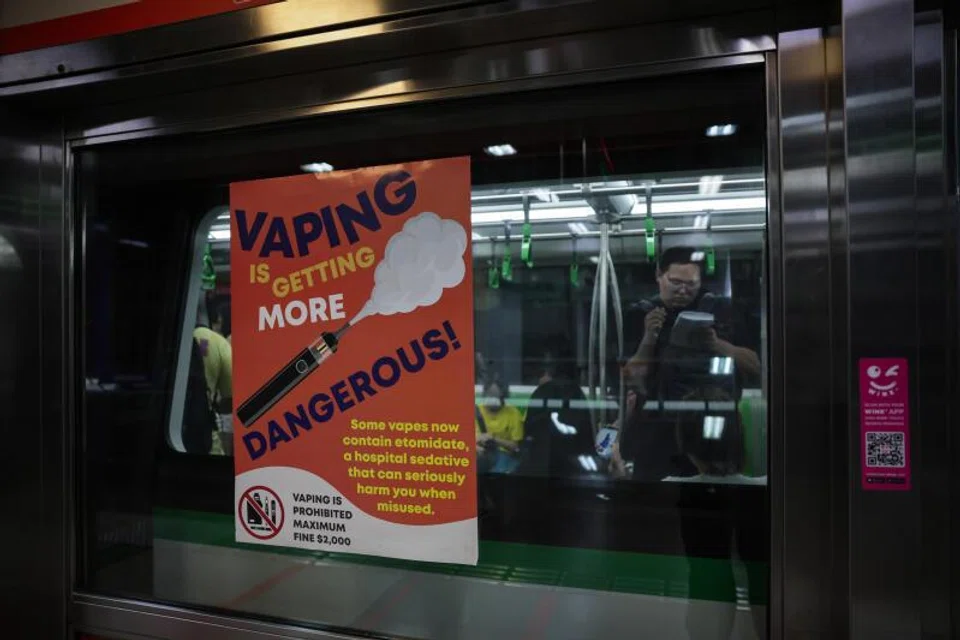
On October 20th, the Shenzhen Electronic Cigarette Industry Expo (IECIE) held an event at the Jakarta International Exhibition Center in Jakarta, Indonesia. Over 12,000 square meters of exhibition space hosted nearly 100 companies, and it is expected that more than 10,000 visitors will participate in the event.
2FIRSTS, as the global cooperation media of IECIE and the strategic cooperation media of China Electronics Chamber of Commerce Electronic Cigarette Professional Committee, provided comprehensive coverage of the exhibition to keep all professionals in the electronic cigarette industry informed about developments in the Southeast Asian market.
At the exhibition, 2FIRSTS established an exclusive press room to interview heavyweight guests and industry figures. The first guest to be interviewed was Garindra Kartasasmita, President of the Indonesian Vaping Association (APVI).
APVI has over 1200 members, including retailers, distributors, importers, and manufacturers, making it one of the largest associations in Indonesia. In a press conference, Garindra discussed the current situation and predictions for the Indonesian e-cigarette market, and offered some suggestions to Chinese exporters.
According to Garindra, the electronic cigarette market in Indonesia has been growing at an annual rate of about 50% since 2013, with a 7% decrease in 2021 due to the pandemic. It is expected to rebound this year with a projected growth of 50%. Garindra believes that the Southeast Asian electronic cigarette market has great potential, but surrounding countries need to keep pace with Indonesia's regulatory system. Malaysia is an example of a country where the market is large but regulation is weak. In comparison, Indonesia's regulation is sound, with fixed consumption taxes for every type of product, such as heated tobacco products and open and closed electronic cigarettes. A new standard for electronic cigarette oil has also been proposed to better regulate flavor, but it has yet to be implemented due to the need for more testing data and scientific research.
When asked how China's electronic cigarette industry could assist their Indonesian counterparts, Garindra provided a practical suggestion for all Chinese manufacturers. Garindra suggested that if their target markets were still countries like the United States, United Kingdom, and the Middle East, they should establish factories in Batam, Indonesia, which is a free trade zone. Chinese companies could ship all raw materials there without paying any tariffs and easily export their product. However, if the target market was Indonesia, these companies could build factories on islands including Java and directly engage with the local market.
For more coverage of the IECIE Jakarta Vape Expo, click on the featured image to be redirected to our dedicated section.
Statement
1. This article is solely intended for internal industry communication and discussion, and does not serve as a promotion or recommendation for any specific brand or product. 2. Smoking is harmful to one's health. Minors should not read this article.
This article is an original piece by 2FIRSTS Technology Co., Ltd. in Shenzhen, and the copyright and usage rights belongs to the company. Any unauthorized copying, reproduction, or infringement of the company's copyright in any form are strictly prohibited, and the company reserves the right to take legal action against violators.
This document has been generated through artificial intelligence translation and is provided solely for the purposes of industry discourse and learning. Please note that the intellectual property rights of the content belong to the original media source or author. Owing to certain limitations in the translation process, there may be discrepancies between the translated text and the original content. We recommend referring to the original source for complete accuracy. In case of any inaccuracies, we invite you to reach out to us with corrections. If you believe any content has infringed upon your rights, please contact us immediately for its removal.







